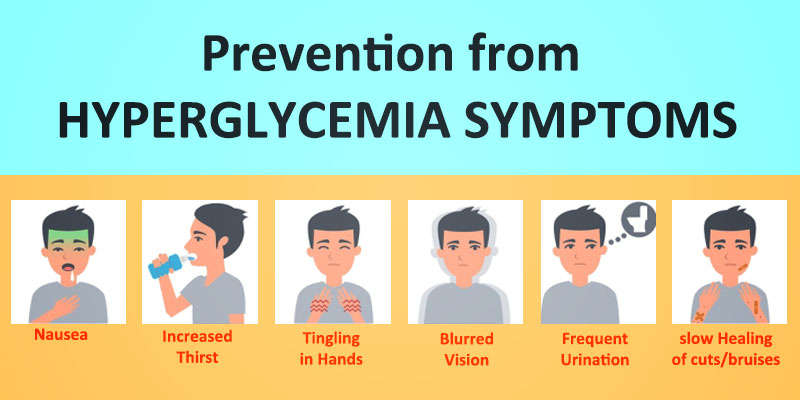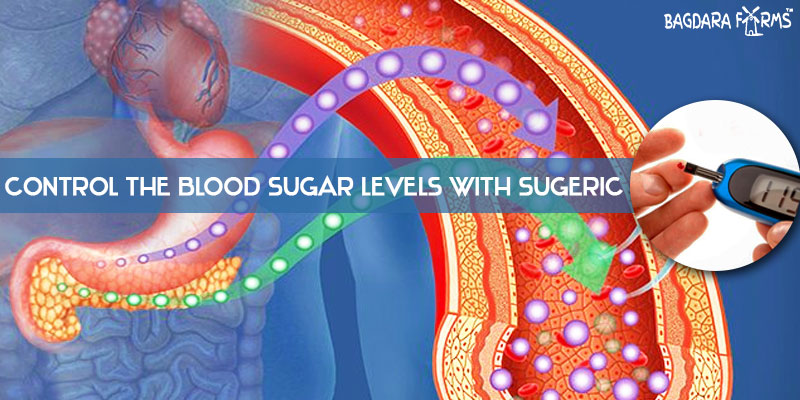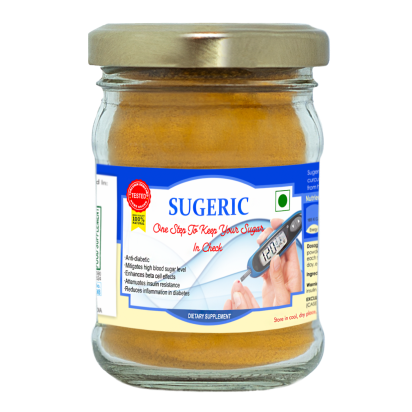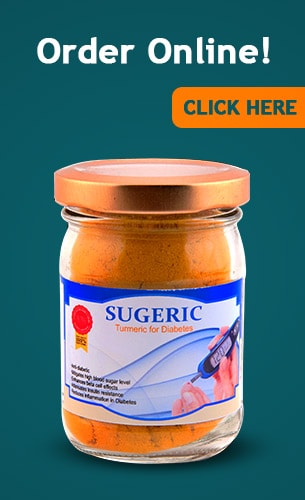Hyperglycemia Treatment with the Help of Curcumin

Hyperglycemia Treatment with the Help of Curcumin
What do you mean by Hyperglycemia?
Hyperglycemia is a condition that diabetics all over the world are wary of. They are educated by their physicians to be very cautious of this condition and keep a watchful eye towards its triggers.
- Hyperglycemia cause when the glucose level in the blood shoots beyond the acceptable maximum level or (high blood sugar level).
- Since our body cells require glucose to function properly, carbohydrates in our diet provide this glucose which is then carried to the cells through the blood stream.
- Insulin, a hormone produced by the pancreas helps in enabling our body to utilize the glucose properly. For instance, if the blood sugar in a healthy body is high, insulin helps in storing the excess sugar in the liver so that it can be released when the body’s blood sugar falls below the required level.
- When someone suffers from Type 1 diabetes, his pancreas stops producing insulin altogether because of which, if medication is not administered on time, his blood sugar level will shoot up leading to Hyperglycemia.
- On the other hand in Type 2 diabetes, the pancreas produces insulin, however, the body develops resistance towards this insulin and refuses to respond to it which again leads to elevated blood sugar level and subsequently hyperglycemia.
What are the signs and symptoms of Hyperglycemia?
The first signs and symptoms of hyperglycemia can be treated as a warning to patients suffering from any form of diabetes. This means that they need to take better care of their condition by following their medication, exercising, and controlling their diet.
The early signs and symptoms of hyperglycemia are as follows:
- Headache
- Fatigue
- Blurred Vision
- Frequent Urination
- Increased thirstiness
The long term sign and symptoms of untreated hyperglycemia are:
- Ketoacidosis (DKA): People with Type 1 diabetes need to be very cautious about hyperglycemia because if this is left untreated for a prolonged period of time it will develop into Ketoacidosis.
- When the human body is denied glucose due to a lack of insulin, it starts to rely on other sources for energy. One of these sources is ketones which are toxic acids. When the quantity of these acids increases in the blood stream. It can lead to deadly consequences in the form of diabetic coma and even death. The symptoms of DKA are:
- Nausea and vomiting
- Stomach pain
- Shortness of breath
- Confusion
- Hyperosmolar Hyperglycemic Nonketotic Syndrome (HHNS): In older people with Type 2 diabetes, when the blood sugar level starts to rise, it may lead to HHNS if not detected in time.
- The body will attempt to remove blood glucose through frequent urination which leads to an increase in thirst to rehydrate the body. However, in case of elderly people who are bed ridden, it may be difficult to replenish the loss of water from the body leading to diabetic coma.
- Damage to the eyes
- Kidney damage
- Cardiovascular complications including heart attack
- Damage to the nervous system
- Stroke
- Longer healing time for wounds
What causes Hyperglycemia?
Hyperglycemia can be caused by a host of unhealthy lifestyle choices in the case of diabetics in specific.
In patients suffering from Type1 or Type 2 diabetes, hyperglycemia may occur due to one of the following reasons:

- Subjecting yourself to high stress for a very long period of time.
- Not taking your insulin injections on time or missing them completely.
- Eating unhealthy food that contains high quantities of sugar or is carbohydrate intensive.
- Avoiding physical activity.
- Gestational diabetes mellitus may develop in older pregnant women which if not monitored and treated may lead to hyperglycemia.
What happens if Hyperglycemia goes Without treatment?
If hyperglycemia is not detected and treated in time it will lead to Ketoacidosis in people suffering from Type1 diabetes, HHNS in people suffering from Type 2 diabetes, damage to eyes, kidneys, nervous system, cardiovascular system, etc.
How can Hyperglycemia be treated naturally?
Hyperglycemia can be treated by:
- Keeping a strict check on the blood glucose levels and adjusting medication accordingly.
- Incorporating a diet plan that helps reduce blood glucose levels.
- Making it a point to include exercise in one’s routine.
- Consider taking natural supplements like curcumin supplements to prevent hyperglycemia.
What are the complications of hyperglycemia?
Chronic, untreated hyperglycemia can lead to a host of deadly conditions like diabetic coma, eye damage, kidney damage, cardiovascular disorders, stroke etc.
How is Hyperglycemia Treated with organic supplements?
- Curcumin has anti-inflammatory properties that help in reducing diabetes and hyperglycemia-induced inflammation in the body.
- Curcumin and its antioxidant properties help in reducing oxidative stress by limiting the production of ROS (reactive oxygen species).
- Curcumin is known to be anti-hyperglycemic in nature which means that it has the ability to control the blood glucose levels and maintain them at an acceptable level.
- A research conducted by Zeinab Ghorbani, Azita Hekmatdoost, and Parvin Mirmiran, (published in the International Journal of Endocrinology and Metabolism found that:
1) Curcumin has anti-hyperglycemic and insulin sensitizer properties that can help in proactively avoiding Hyperglycemia.
2) Curcumin possesses the ability to reduce the blood glucose level
Another research conducted by Lin J et al and published in the US National Library of Medicine National Institutes of Health, proved that curcumin reduces the impact of hyperglycemia on the liver and hampers the development of hepatic fibrosis.
Sugeric is the organically produced curcumin enriched product that will help in keeping the sugar levels in check and it is this curcumin, which will help in the treatment and prevention of hyperglycemia.
How is Hyperglycemia Treated with organic supplements?
- Curcumin has anti-inflammatory properties that help in reducing diabetes and hyperglycemia-induced inflammation in the body.
- Curcumin and its antioxidant properties help in reducing oxidative stress by limiting the production of ROS (reactive oxygen species).
- Curcumin is known to be anti-hyperglycemic in nature which means that it has the ability to control the blood glucose levels and maintain them at an acceptable level.
- A research conducted by Zeinab Ghorbani, Azita Hekmatdoost, and Parvin Mirmiran, (published in the International Journal of Endocrinology and Metabolism found that:
1) Curcumin has anti-hyperglycemic and insulin sensitizer properties that can help in proactively avoiding Hyperglycemia.
2) Curcumin possesses the ability to reduce the blood glucose level
Another research conducted by Lin J et al and published in the US National Library of Medicine National Institutes of Health, proved that curcumin reduces the impact of hyperglycemia on the liver and hampers the development of hepatic fibrosis.
Sugeric is the organically produced curcumin enriched product that will help in keeping the sugar levels in check and it is this curcumin, which will help in the treatment and prevention of hyperglycemia.




